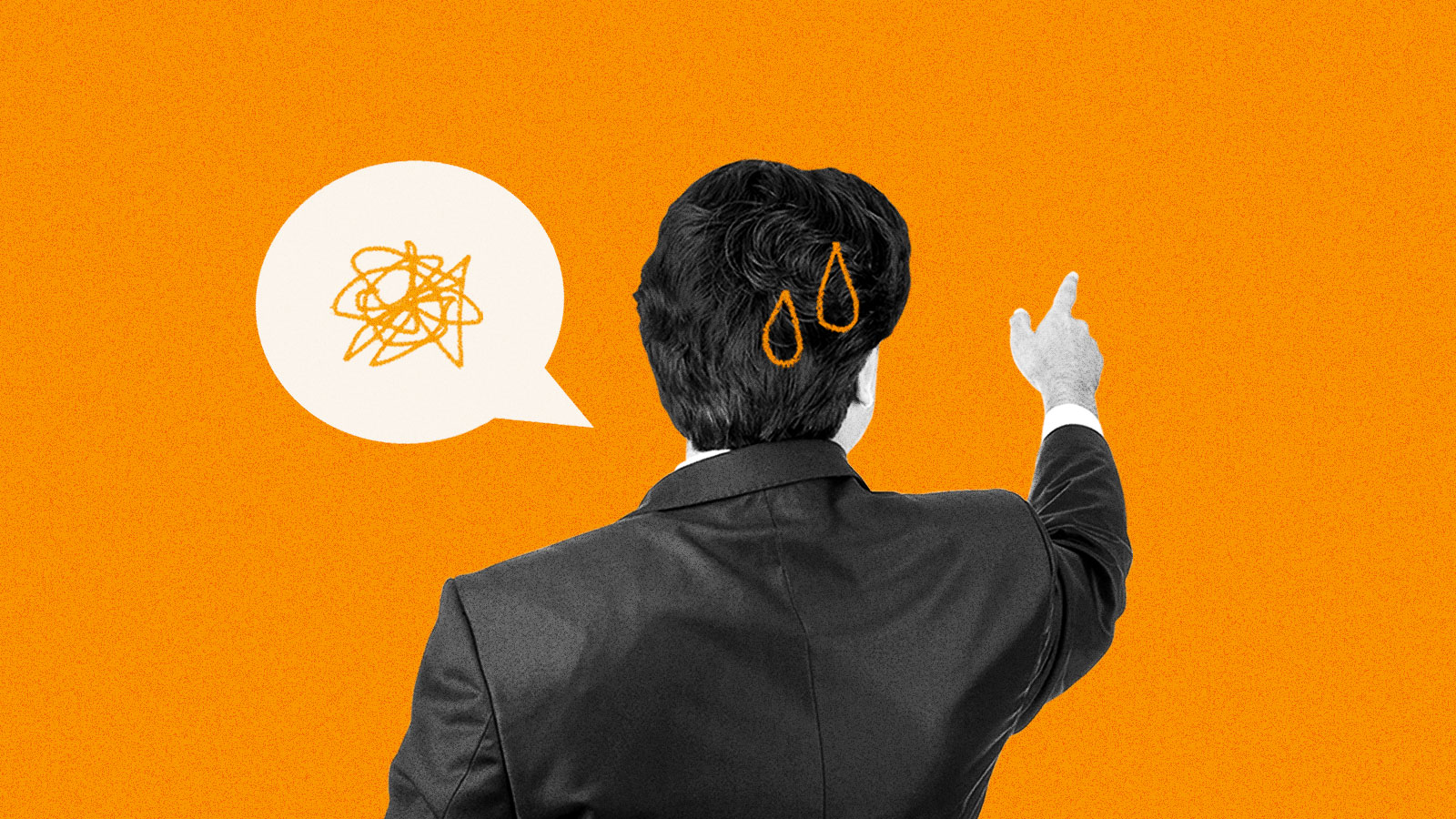
Heat waves don’t just make you sweat – they can mess with your brain too. It has been established that hot weather can lead to lower scores on math tests and higher rates of aggression, ranging from mean behavior on violent crime. A small but growing body of research suggests that it can also affect how people speak.
Politicians tend to use shorter words in speeches when the temperature outside is 75-80 degrees Fahrenheit or warmer, according to a study published in the journal iScience on Thursday. The analysis looked at 7 million speeches in eight countries – the United States, the United Kingdom, Austria, the Netherlands, New Zealand, Denmark, Spain and Germany – and compared them to the average temperature on the day they were delivered. Cold days did not have the same effect.
Understanding the effects of heat on cognitive abilities becomes especially important as the climate warms, says Risto Conte Keivabu, a co-author of the study who researches climate change at the Max Planck Institute for Demographic Research in Germany.
On days hotter than 81 degrees F, the simpler language used by politicians was equivalent to losing half a month of education. The result is likely an underestimate, Conte Keivabu said, since the study tried to “disentangle the impact of heat from all the possible confounding factors in the most conservative way possible.” Looking only at the data from Germany, researchers found the effect to be comparable to a four-month reduction in education, he said. The speeches were measured using Flesch-Kincaid readability tests, which determine how difficult a text is to understand based on the length of the words and sentences.
The study found that adults over the age of 57 were more sensitive to heat, based on the German data, with temperatures in the range of 70-75 degrees F being associated with changes in their speech. Heat is especially dangerous for older adults, who have a harder time cooling down due to poorer circulation and weakening sweat glands.
Other studies support the idea that heat can mess with our words — though more for the reason that it can make your mood worse. Hate speech tends to rise with the thermometer: The number of tweets in the US the use of pejorative or discriminatory language jumped by up to 22 percent during extreme heat, according to a 2022 study. Researchers observed a similar phenomenon on Chinese social mediawith people using more negative language on very hot days.
However, unlike social media posts, speeches are typically prepared in advance, making politicians’ shift to less complex language on hot days more surprising. The researchers claim that the psychological effects of heat “can influence a speaker to simplify speech or deviate from prepared remarks due to impaired cognitive function and comfort.”
So how is it that a heat wave outside can change the quality of speech indoors? The study proposes a few theories. Perhaps even a brief exposure to heat can cause problems, such as waiting for a train during a commute or taking a break outside; or conversely, uncomfortable temperatures outside may lead people to stay indoors where the lack of fresh air may hamper their cognitive abilities. Another possibility is that people tend to sleep worse when they’re hot, making it harder to think straight the next day.
Using simpler language is not necessarily bad – in fact, it is often easier to understand. But when someone uses less complex language over time, it can indicate cognitive decline, according to Conte Keivabu. “We don’t know if this leads to outcomes when it comes to the decision-making of politicians or how effective they are in getting their messages across,” he said. Researchers have found that using more generic wording can be an early warning sign of dementiaa pattern detected in writers’ books and politicians’ speeches.
Heat is not the only environmental factor that can subtly influence us to say one thing instead of another. A 2019 study found that exposure to air pollution led similarly a reduction in the complexity of speeches by members of the Canadian Parliament, the equivalent of losing almost three months of education.






